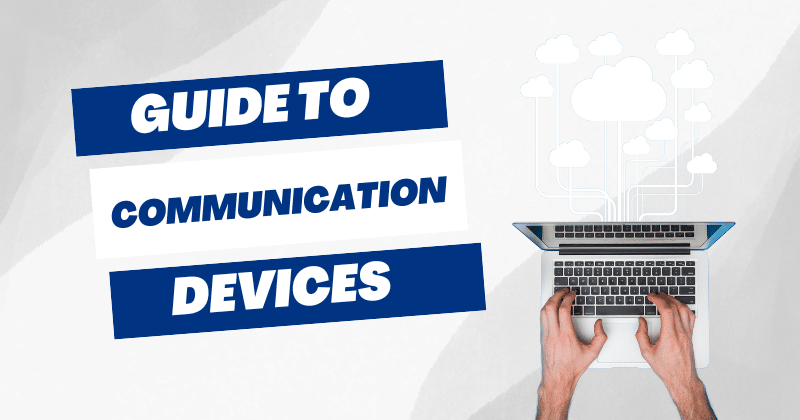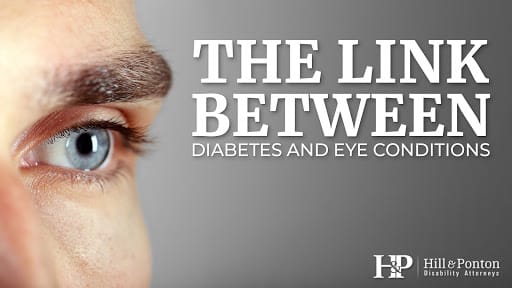Whether a veteran is affected by combat-related injuries or service-related conditions, being able to express oneself and connecting with others is crucial for personal growth and successful integration into civilian life.
This comprehensive guide will delve into the realm of communication aids specifically designed to enhance the communication abilities of veterans with disabilities.
From augmentative and alternative communication (AAC) devices to revolutionary voice recognition software, we will explore cutting-edge tools that can transform veterans’ communication.
Our mission is to equip you with valuable insights and practical knowledge so that you can make informed decisions about the communication aids that best suit your unique needs.
In the following sections, we will explore the definition, purpose, and types of AAC devices, including dedicated devices with pre-programmed symbols or words, mobile apps and software for smartphones and tablets, and symbol boards and communication books.
Additionally, we will dive into voice recognition software, understanding how it assists individuals with speech and language disabilities, and highlighting examples of popular software such as Dragon NaturallySpeaking, Google Voice Typing, and Apple Dictation.
By the end of this guide, you will have a deeper understanding of the communication aids available to you as a veteran with disabilities.
Embracing these tools can lead to enhanced communication skills, fostering stronger connections with loved ones and opening doors to new opportunities in both personal and professional realms.
Communication Aids
Communication aids are specialized tools that empower individuals with disabilities to communicate more effectively.
These aids serve as assistive devices, compensating for speech and language impairments, and providing alternative means of expression.
They aim to bridge the communication gap and enable veterans to convey their thoughts, needs, and emotions with clarity and confidence.
Role of Communication Aids
For veterans with disabilities, communication aids serve as invaluable companions, empowering them to regain their voice and participate actively in daily interactions.
These aids play several crucial roles in supporting individuals with disabilities:
- Facilitating Expression: Communication aids provide alternative methods of expression for veterans with speech and language disabilities. They help overcome challenges such as aphasia, dysarthria, or cognitive impairments, enabling individuals to communicate their ideas, feelings, and needs effectively.
- Enhancing Independence: By using communication aids, veterans gain greater independence in various aspects of life. These aids enable them to engage in conversations, express preferences, make decisions, and advocate for themselves, fostering a sense of autonomy and self-determination.
- Improving Social Connections: Effective communication is the cornerstone of building meaningful social connections. Communication aids enable veterans to connect with family, friends, healthcare professionals, and the broader community. By enhancing communication abilities, these aids facilitate social interaction and reduce isolation.
- Supporting Vocational Opportunities: Communication aids can be instrumental in professional settings, enabling veterans to pursue meaningful careers. They help veterans communicate with colleagues, participate in meetings, and express their ideas and expertise effectively, opening doors to various employment opportunities.
- Promoting Emotional Well-being: The ability to communicate and be understood is closely tied to emotional well-being. Communication aids provide a platform for veterans to express their emotions, share their experiences, and seek support, fostering a sense of belonging and emotional fulfillment.
By utilizing communication aids, veterans with disabilities can overcome barriers, regain their voice, and actively engage in the world around them.
These aids serve as powerful tools, empowering individuals to express themselves confidently, connect with others, and seize new opportunities.
Augmentative and Alternative Communication (AAC) Devices
AAC devices are specialized tools designed to support individuals with disabilities in expressing their thoughts, needs, and emotions.
These devices serve as augmentative or alternative methods of communication when speech or language abilities are impaired.
AAC devices enhance communication for veterans with aphasia, traumatic brain injury, or motor impairments.
The purpose of AAC devices is to empower veterans to communicate effectively, regardless of their limitations.
The devices offer various modes of communication, including visual symbols, pre-programmed words, gestures, or text-to-speech capabilities.
By using AAC devices, veterans can engage in conversations, participate in daily activities, and establish meaningful connections with others.
Types of AAC Devices
AAC devices come in different forms to cater to veterans’ diverse needs and preferences.
Here are three common types of AAC devices:
- Dedicated Devices with Pre-programmed Symbols or Words: These devices are designed for communication and feature pre-programmed symbols or words. They may have physical buttons or touchscreens, allowing veterans to select the desired symbols or words to express their thoughts. Dedicated devices provide a comprehensive vocabulary and customization options, accommodating individual communication needs.
- Mobile Apps and Software for Smartphones and Tablets: With the advancement of technology, AAC solutions have become readily available on smartphones and tablets. Veterans can download and install numerous AAC apps and software applications on their mobile devices. These apps offer similar functionalities as dedicated devices, providing a portable and accessible communication solution.
- Symbol Boards and Communication Books: Symbol boards and communication books are tangible tools that utilize visual symbols to facilitate communication. These boards or books feature a collection of symbols or pictures representing words, phrases, and concepts. Veterans can point to symbols or pictures to convey their messages effectively. Symbol boards are often customizable, allowing individuals to create personalized communication systems.
By utilizing AAC devices, veterans with disabilities can regain their ability to communicate confidently and efficiently.
AAC provide a voice for those who face speech or language challenges, ensuring that their thoughts and needs are heard and understood.
Voice Recognition Software
Voice recognition software, also known as speech recognition software, is a technology that converts spoken words into written text through advanced algorithms and linguistic analysis.
By leveraging the power of artificial intelligence, this software allows veterans to speak naturally while the software transcribes their words in real time.
Voice recognition software offers several key benefits:
- Enhanced Communication: Voice recognition software enables veterans with speech and language disabilities to communicate effortlessly by bypassing traditional typing methods. It empowers individuals to express their thoughts and ideas more fluidly and efficiently, facilitating smoother conversations and interactions.
- Improved Productivity: With voice recognition software, veterans can significantly increase their productivity. Instead of spending time typing, they can dictate their messages, documents, or emails, saving valuable time and energy. This software can boost efficiency, allowing veterans to accomplish tasks more quickly and effectively.
- Accessibility and Inclusivity: Voice recognition software promotes accessibility and inclusivity by providing an alternative communication method for individuals with speech and language disabilities. It removes barriers and allows veterans to participate in various activities, such as writing, creating content, and engaging in digital platforms.
Several voice recognition software options cater to different operating systems and devices.
Here are some examples:
- Dragon NaturallySpeaking: Developed by Nuance Communications, Dragon NaturallySpeaking is a leading voice recognition software widely used by veterans and professionals alike. It offers accurate and reliable speech-to-text conversion, supporting various applications and workflows. Dragon NaturallySpeaking provides comprehensive features, including voice commands for hands-free operation, making it a versatile tool for veterans with speech and language disabilities.
- Google Voice: As part of the Google suite of applications, Google Voice Typing is a convenient voice recognition solution available for both desktop and mobile devices. It integrates seamlessly with Google Docs, allowing veterans to dictate their documents easily. Google Voice Typing supports multiple languages and offers real-time transcription, making it a user-friendly option for veterans who prefer cloud-based solutions.
- Apple Dictation: Apple Dictation is an integrated voice recognition feature on macOS and iOS devices. It enables veterans to dictate text across various applications, including Notes, Pages, and Messages. With Apple Dictation, veterans can effortlessly convert their spoken words into written text, harnessing the power of voice for effective communication.
By embracing voice recognition software, veterans with speech and language disabilities can overcome communication barriers and unleash their full potential.
These software solutions offer a voice and empower individuals to express themselves confidently in personal and professional settings.
Communication aids hold tremendous potential for veterans with disabilities, serving as invaluable tools to enhance communication abilities and foster connections.
Augmentative and Alternative Communication (AAC) devices offer alternative methods of expression, allowing veterans to effectively communicate their thoughts, needs, and emotions.
On the other hand, voice recognition software empowers individuals with speech and language disabilities to convert spoken words into written text effortlessly.
Together, these communication aids pave the way for veterans to regain their voice, participate actively in daily interactions, and seize new opportunities.
By embracing communication aids, veterans can overcome barriers and reclaim their ability to express themselves confidently and clearly.
These aids promote independence, improve social connections, support vocational opportunities, and contribute to emotional well-being.
They empower veterans to engage in conversations, advocate for themselves, and establish meaningful connections with loved ones, colleagues, and the broader community.




